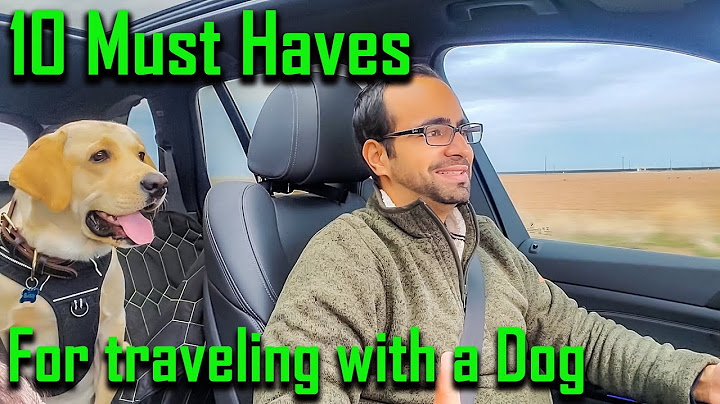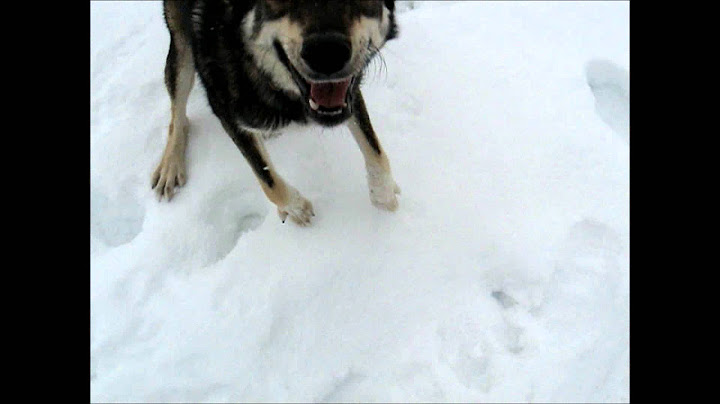This post may contain affiliate links, meaning I get compensated if you buy through these links – this is at no extra cost to you. You can read my full disclosure here. Show
Learning how to potty train a German Shepherd puppy does not have to be stressful or worrisome but it does take time and persistence. When you bring your puppy home the first house rule she should learn is not to poop and pee in the house. If you do it right you'll see it's easier than you think. I've had the pleasure of potty training many German Shepherd pups. Today I'd like to share my techniques and tips with you… The key is to teach your puppy that eliminating inside is out of bounds. If you don't do this, you'll have a half-trained dog that will eliminate inside when it's convenient. Learn exactly how to do this! Get your hands on my Flawless Potty Training Guide. Read more about my Flawless Potty Training Guide. Here's some feedback from students who have had awesome results using my Flawless Potty Training method…   13 Tips on How to Potty Train a German Shepherd PuppyAs luck would have it, you have some awesome benefits working in your favor…  #1. Nature Potty training a German Shepherd puppy doesn't need to be stressful. When pups are born they eat, poop, and pee in the den. Thanks to mom the den is never smelly or unhygienic. Part of mom's job is to clean up the mess. The benefit of this is conditioning to keep ‘clean living quarters' has already begun. One downside of owners taking pups at 6 or 8 weeks is they never learn from mom to ‘do their business outside'. But it's not a train smash, it's just up to you to teach your new German Shepherd puppy where the appropriate place is to relieve herself. #2. ConditioningDogs are context-bound. This means once they learn a habit they'll keep doing it. For example: if a puppy learns to poop and pee on the grass instead of your paved driveway she'll always go on the grass. #3. Reliable Digestive TractYour German Shepherd's tummy is ‘well-oiled' and efficient. This is great news for you! Anywhere between 10 and 30 minutes after eating your pup will want to go to the loo. All you have to do is feed at regular times and clock-watch. #4. Reliable BladderAt approximately 20 days your German Shepherd puppy is able to control her bodily functions. In other words, she'll eliminate when necessary. At 8 to 16 weeks your pup can only hold her pee for approximately 2 hours. Take her out every hour to be safe. By the time your pup is 16 weeks, she'll be able to hold her pee for at least 4 hours. From 6 months she'll hold her pee for up to 4 hours. Get Access to My Daily Schedule and I'll show you how to potty train a German Shepherd puppy quickly and successfully. Using only positive methods and never punishment. #5. Your AttitudeHow to potty train a German Shepherd puppy is influenced by your attitude in a BIG way. Attitude will influence how long it takes and how successful the training will be. Puppies and adult dogs take a lot of cues from our voice and body language. Rushing your puppy or distracting her with your voice could make her nervous and prevent her from ‘doing her business'. Stay relaxed and avoid verbal encouragement. Check out this ultimate guide: How do you crate train a German Shepherd? #6. RoutineYour German Shepherd puppy will need to ‘go potty' first thing in the morning, after eating, when waking up from a nap, and usually after playing. Set a routine according to these needs and she'll learn the process in no time. Learn more about how you can flawlessly potty train your puppy! #7. Rewarding Correct Behavior My boy Zè getting it right! Rewarding your puppy each time she gets it right will encourage her to keep doing the right thing. You can reward with a treat or affection. This depends on which your pup wants more of. I use a mixture to avoid my pup from becoming too attached to treats. #8. Positive ReinforcementIf your puppy has an accident inside don't punish her. So no raised voice or shouting. Punishment will cause negative feelings about natural body functions. She might even find sneaky places inside to use as her toilet, which you want to avoid at all costs.
#9. Pee Pads or Paper are NOT helpfulAlthough you can easily teach your German Shepherd puppy to use pee pads or paper, it only complicates potty training. Why? Well, because at some point they will need to be transitioned from pee pads or paper to outside. So essentially you're adding an extra step to potty training. This can cause confusion and potty training accidents. Rather go for gold and get your pup conditioned to using their toilet outside! #10. Make Peace with Lack of Sleep (for a while)You will need to sacrifice some sleep for a while. We can't expect our pups to ‘keep it in' for longer than they can. If accidents are happening at night, you should take your pup out more often. Accidents will happen, but the more your pup has potty accidents in her personal space, the more comfortable she'll become doing it. You really want to avoid this at all costs. Does your puppy need a comfy, new bed? Check out the best dog beds for German Shepherds. #11. Access to New SpacesAccess to new spaces depends on whether your pup is performing well with potty training. If she's having accidents around the house, allowing her more access is setting her and yourself up for failure. If you want to learn how I manage this without isolating my pup, get your hands on my Flawless Potty Training Guide. In general, with training, if a puppy makes a mistake it's an opportunity to learn. But with potty training, you really want to avoid giving your puppy the opportunity to eliminate inside. You can find out exactly how to do this inside The Flawless Potty Training Guide. #12. Common Mistakes You Should AvoidThere are some common mistakes that could make potty training your German Shepherd puppy go less smoothly than you intend. Watch out for these little things…
#13. How to Get Your GSD to Potty in WinterWinter months can put a major strain on potty runs. When temps dip below freezing, you might need to be more insistent when taking your pooch out to do their business. And when it's bitterly cold out, who can blame them for holding their pee for longer than they should? Or for declining invitations to go for a potty run? The problem is that the longer your pooch holds their pee, the more chance there is for bacteria build-up. And when your dog's immune system can no longer fight the bacteria, a UTI can set in. Some vets have noted an increase in Urinary Tract Infections during the icy-cold months of winter. But with some careful planning, there are a few handy things you can implement to avoid a UTI, encourage potty runs, and make the experience more comfortable for your doggo…
Potty training should not be stressful, it is a time of bonding. Your pup is learning house rules to ensure the happy co-existence of you and pup for a long time to come. She's also learning to trust you, an important foundation for further training. The key take aways here are:
For the most positive way on how to potty train a German Shepherd puppy, get access to the exact method I've used for years and my daily schedule click on the blue link just below… Read more about the Flawless Potty Training Guide Here! If you're struggling with your puppy's biting, here's an article to teach your pup not to be a land shark! Your dog should be just as comfy as you are in bed. Check out the latest and best rated orthopedic dog beds. Looking for the best online dog training program? Check out my full reviews of the best and the worst programs. Are German Shepherd puppies easy to train?German Shepherds are obedient, making them easier to train compared to other dog breeds. Not only do German Shepherd perform well in task training, obedience training wouldn't be any problem for them as well. They will listen and obey to your commands.
How do I house train my German Shepherd puppy?Here's how to make it easy for you and your GSD to succeed!. Prevention is Key. Set your phone's alarm to remind you to take your puppy outside every 2 to 3 hours. ... . Teach Them to Love Their Crate. ... . Use Puppy Pads. ... . Teach Them a Potty Routine. ... . Know Your Puppy's Potty Dance. ... . Add in a Cue. ... . Prevent Accidents.. How long does it take to fully house train a German Shepherd puppy?If everything goes according to plan, your German Shepherd can be potty trained within five days. However, that does not mean your pup will be able to be locked indoors for eight hours while you go to work and not make a mess.
How do I control my German Shepherd?Not harder!. Start early and remain consistent with your expectations. ... . Use reward-based training. ... . Offer your puppy another option when they begin jumping on you for attention. ... . Redirect bad German Shepherd puppy behavior. ... . Use time-outs appropriately when training a German Shepherd puppy. ... . Ignore the unnecessary barking.. |

Related Posts
Advertising
LATEST NEWS
Advertising
Populer
Advertising
About

Copyright © 2024 en.apacode Inc.


















